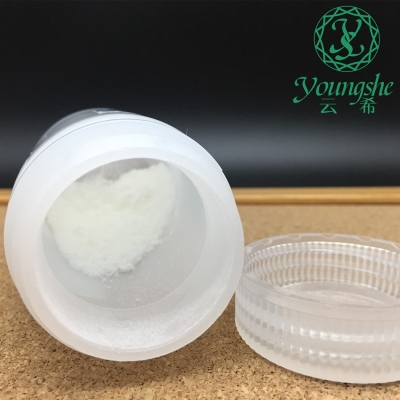-
Categories
-
Pharmaceutical Intermediates
-
Active Pharmaceutical Ingredients
-
Food Additives
- Industrial Coatings
- Agrochemicals
- Dyes and Pigments
- Surfactant
- Flavors and Fragrances
- Chemical Reagents
- Catalyst and Auxiliary
- Natural Products
- Inorganic Chemistry
-
Organic Chemistry
-
Biochemical Engineering
- Analytical Chemistry
- Cosmetic Ingredient
-
Pharmaceutical Intermediates
Promotion
ECHEMI Mall
Wholesale
Weekly Price
Exhibition
News
-
Trade Service
Importance: Diabetes is a leading cause of morbidity and mortality in the United States
.
In 2018, the U.
The age-adjusted prevalence of diabetes ranges from 1.
Method: This is a national cohort study of 4,100,650 U.
S.
veterans without type 2 diabetes
.
Participants entered the cohort between 2008 and 2016 and were followed up in 2018
Exposure: The five-year average counts of fast food restaurants and supermarkets relative to other food stores at baseline are used to measure the community food environment
.
The relationship between the food environment and the onset time of diabetes was tested using a segmented index model, which was separated by a 2-year time interval and a county-level random effect stratified by community type
Results: The mean (SD) age of the cohort participants was 59.
4 (17.
2) years
.
The majority of respondents were non-Hispanic whites (2,783,756 [76.
The relative density of fast food restaurants is positively correlated with a moderate increase in the risk of type 2 diabetes
Table 2 Demographic characteristics of the incidence of type 2 diabetes, overall and community type
Table 2 Demographic characteristics of the incidence of type 2 diabetes, overall and community typeFigure The segmented index model tests the relationship between the 2008-2018 U.
S.
veterans' risk of type 2 diabetes and the ratio of fast food restaurants to all restaurants and the ratio of supermarkets to all food stores in the community
S.
veterans' risk of type 2 diabetes and the ratio of fast food restaurants to all restaurants and the ratio of supermarkets to all food stores in the community
Conclusions and relevance: These findings indicate that the community food environment is related to the type 2 diabetes of veterans in various community types in the United States, and that the food environment is a potential way to solve the burden of diabetes
.
In this longitudinal cohort study of 4,100,650 veterans, the relative availability of fast-food restaurants from rural to high-density cities was associated with an increased risk of diabetes compared with the relative availability of all restaurants in the community
The community food environment is related to the type 2 diabetes of veterans in various communities in the United States.
Kanchi R, Lopez P, Rummo PE,et al.
Longitudinal Analysis of Neighborhood Food Environment and Diabetes Risk in the Veterans Administration Diabetes Risk Cohort.
Leave a message here







